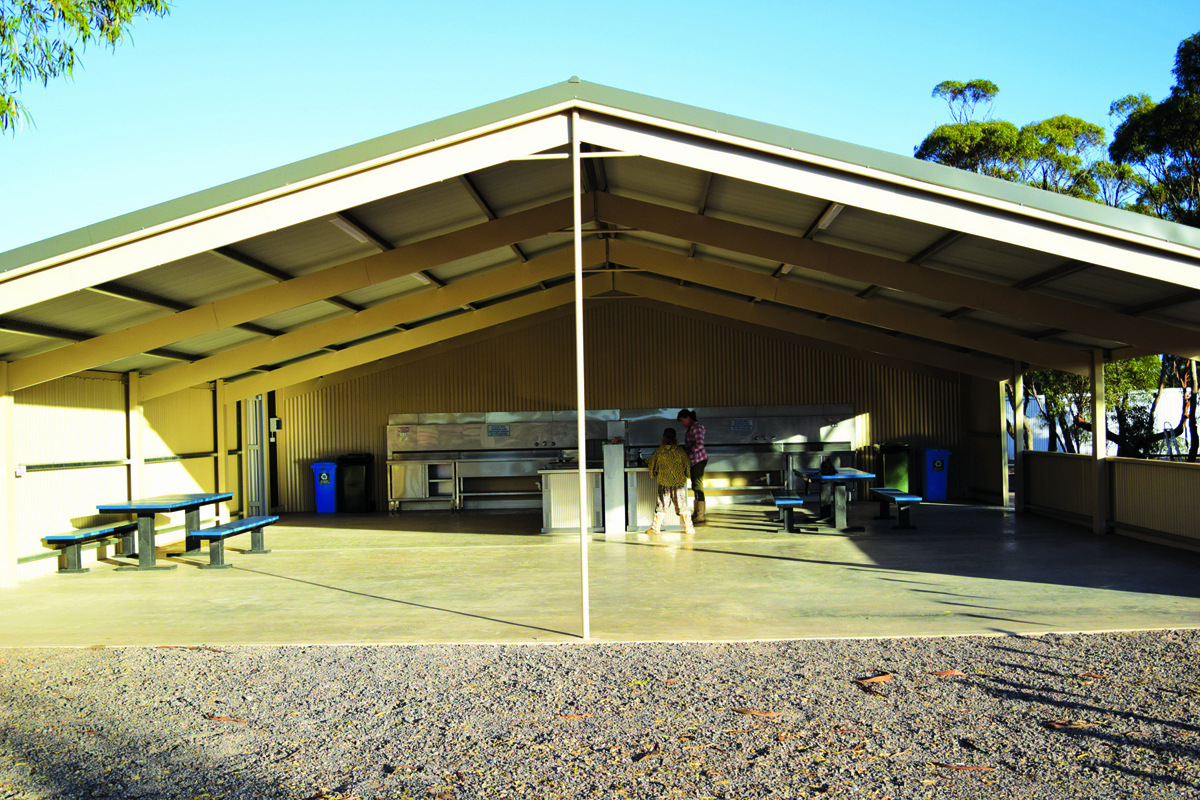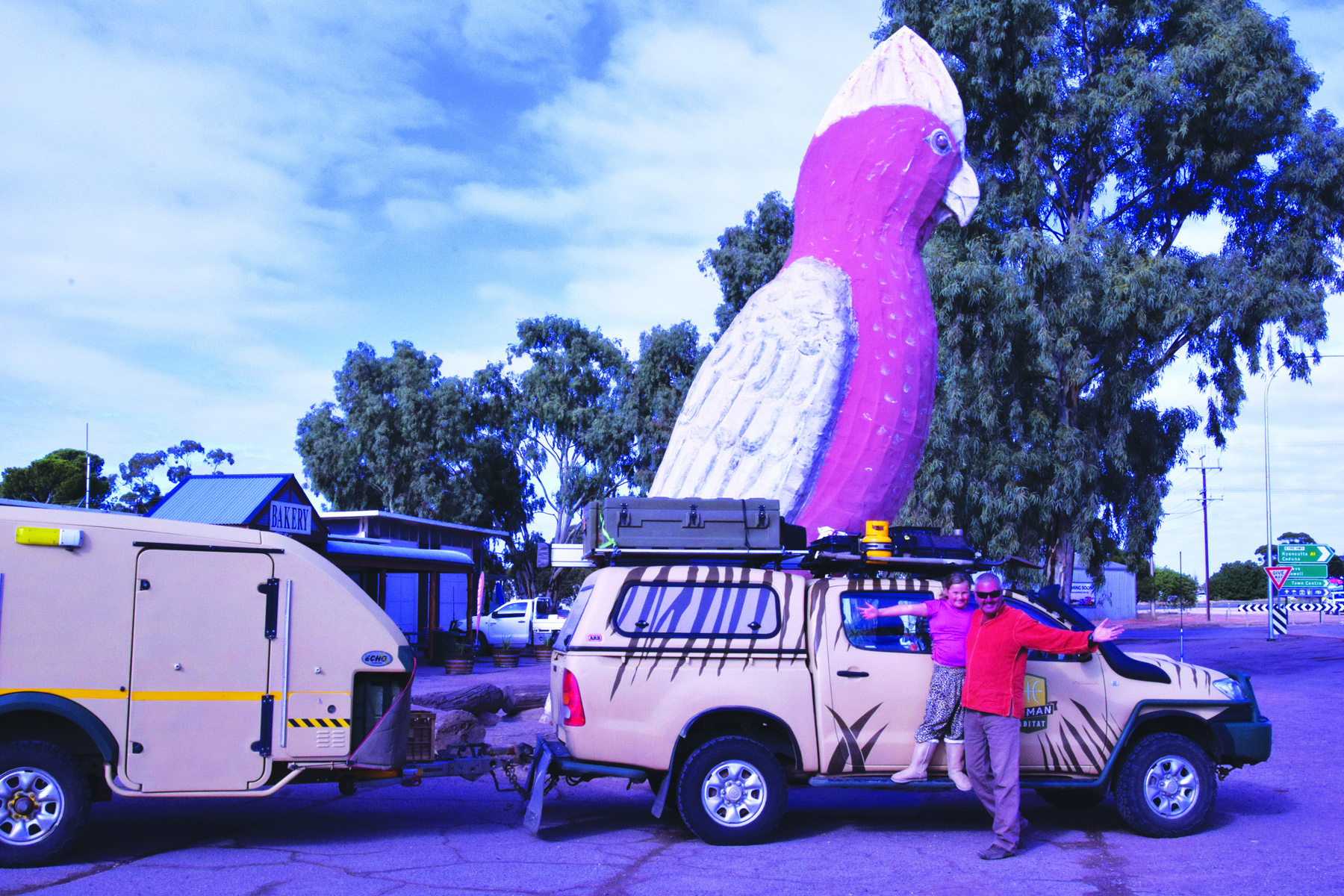Small-town Layovers
Australian families have been enjoying an overlanding lifestyle since at least the early 1950s. Popular caravanning owes its origins to the post-World War II advent of affordable and capable family sedans, and an associated up-tic in the caravan industry. Instead of the weekend shack of former years, a mobile recreational lifestyle developed — accompanied by a boom in the number of caravan parks.
Today over 2000 caravan and tourist parks have sprung up around Australia, many located in some of the country’s most iconic locations. Ranging from basic sites with the ubiquitous shared amenities block, through to offerings that are so well-equipped it can be hard to drag the kids away beyond the parks’ boundaries, there are certainly plenty of parks to choose from.
The reality is, however, that regional towns with a decent caravan park have long held an economic advantage over those that don’t. A study published by the Caravan Industry last year revealed that caravan parks generate an estimated $170 million worth of economic benefit in Australian regional communities. Which suggests that the existence of a caravan park can genuinely help a town to alleviate some of the economic pressures caused by factors such as extended drought, demographic changes, and rural unemployment.
But what about the rest? Are towns without tourist parks destined to simply watch as recreational travellers fuel up, put their wallets back in their pockets and keep driving? I don’t think so. It’s pretty obvious that progressive local councils are putting on their thinking caps in an effort to better capture the growing recreational caravan and camping sector.
 Is this the best and biggest freecamp kitchen in Aus?
Is this the best and biggest freecamp kitchen in Aus?
I don’t know about you, but I reckon that over the last five years, there’s been a palpable increase in the number of excellent council-run campsites that have materialised in some of the most unexpected places. Commonly, it’s a 24-hour RV site at a local showground with access to a toilet and shower and an honesty box to help cover expenses. And then there are others. The ones that make you feel truly humbled by the lengths that small communities will take to have us stay a while, spend some coin, and enjoy what the local area has to offer. No doubt you’ve started to find these gems yourself.
For my part, it’s hard to speak highly enough of the Kimba Recreation Reserve in South Australia. Council-run, it has 8 toilets, 4 showers (including ambulant) and a pristine 225 sqm camp kitchen. Nearby you’ll find a playground, oval, and the local gym. There’s even a Thursday evening courtesy bus to the local club for schnitty night. All this at a pet-friendly site where you can stay for up to five nights for the price of your voluntary donation. With our foot off the accelerator, we discovered the silo art, coffee shop, local heritage museum, look-out and walking trails. And while we got a little closer to the beating heart of rural Australia, the local community benefitted from our incidental business.
Or how about the Diamantina Shire Council’s tourist park at Bedourie in outback Queensland? It has toilets, showers, a laundry and BBQs. Better still, it’s located right across the road from the 1886 Royal Hotel and next to the town’s aquatic centre. This place includes one of the best artesian hot springs we’ve ever rested our weary bones in. With powered and non-powered sites available for a small fee, it’s enough to make you want to cuddle a Council worker.
 What makes you stop and stay a while?
What makes you stop and stay a while?
There’s a long-running debate in some sectors about whether local councils should ‘compete’ with commercial camp park operators for tourists’ business. Indeed, in Tasmania we’ve visited a town where a volunteer-run ‘free camp’ was forced to close under pressure from a commercial park owner, even though its site was over 20km away. I understand the arguments. God knows the service industry has been doing it tough in recent years, so it’s any wonder that businesses can feel compelled to protect their turf now and again. But sometimes the option to roll-up to a council facility simply makes sense.
Whether it’s because we need to save a few dollars on accommodation expenses, have no immediate need for a tourist park’s amenity, the next commercial caravan park is too far away, or we simply feel the urge to stop and explore. Options are what keep us on the road longer, and more safely. And if these options also help keep rural and regional communities afloat, it’s hard to quibble.
Here’s hoping everyone’s a winner.








0 comments